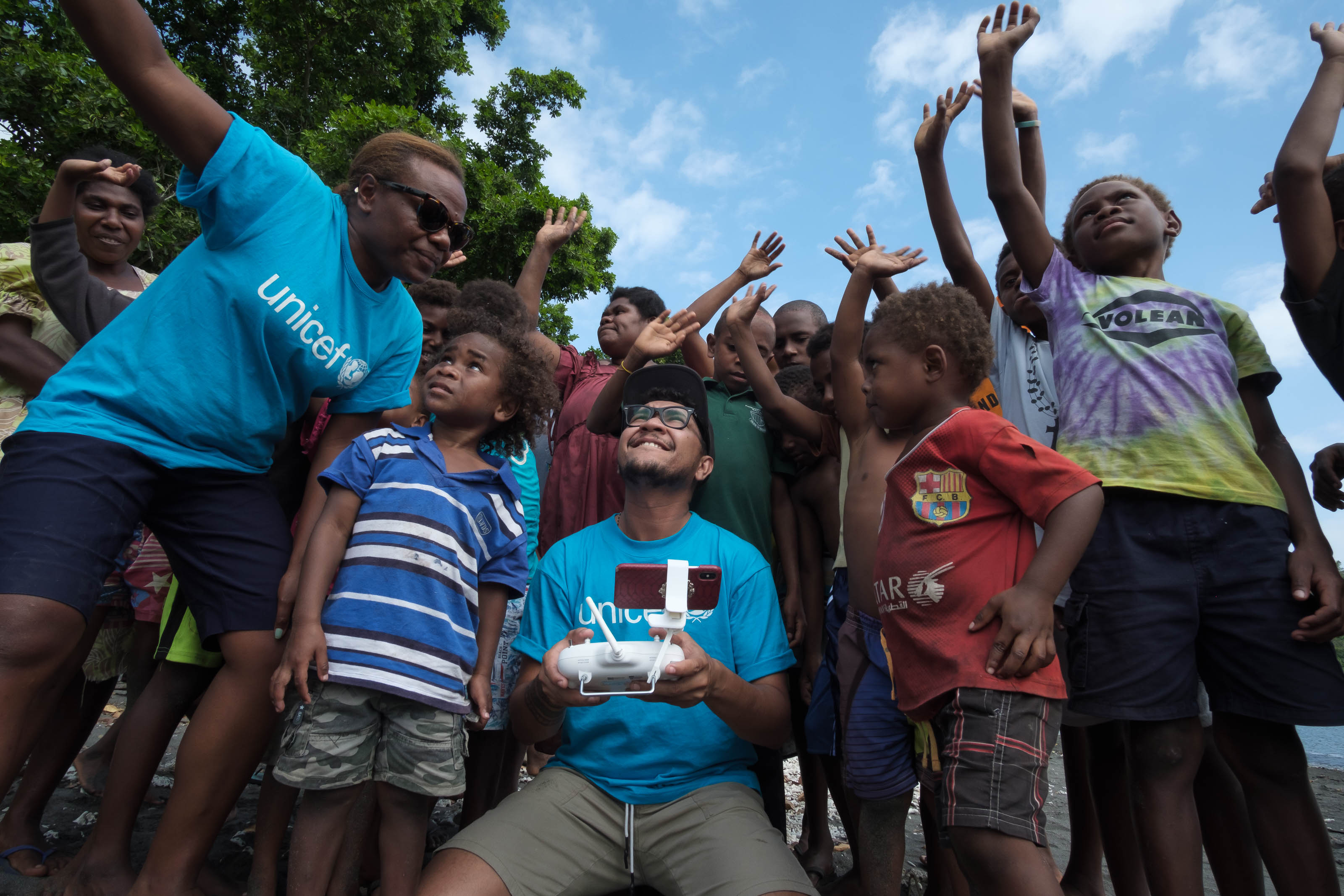

Drones
Drones for Vaccine Delivery: Reaching the last mile in Vanuatu
UNICEF Vanuatu, in partnership with the Government of Vanuatu are exploring use of drones to increase the availability of vaccines and decrease the logistics costs. Vanuatu’s geography poses huge challenges on vaccine distribution. With 65 inhabited tropical islands stretching across 1600 km over Pacific Ocean, expensive traditional land transport and only 20 islands that have airfields, vaccinators have to cover major distances to replenish their stocks. The project evolved from a technical challenge to drone companies assessing delivery capacities, viability, reliability, cost and acceptance by the community, to piloting ‘real-life” vaccine delivery over several months. In a world first, the Government of Vanuatu awarded three commercial contracts to two drone companies. These companies have designed and implemented Logistics and Operating Procedures for vaccine supply chain by drone, as well as provided training to the local health workers that receive the vaccines at rural facilities. On 18 December 2018, one-month old Joy Nowai became the world’s first child to be given a vaccine delivered commercially by drone. The companies delivered vaccines from seven distribution centers to 48 rural health facilities in Vanuatu’s Pentecost, Epi, Shepperd and Erromango islands. The trials benefited more than 1,000 children and 100 pregnant women who live in the hardest to reach areas in Vanuatu. On average, drones delivered vaccines in a 25 minute flight instead of a journey that took hours and sometimes days for health workers to complete.
The drone policies and regulations developed for Vanuatu, in collaboration with the country’s Civil Aviation Authority will be used by the International Civil Aviation Organization as a better practice for global recommendations on how to safely use drones for humanitarian missions.